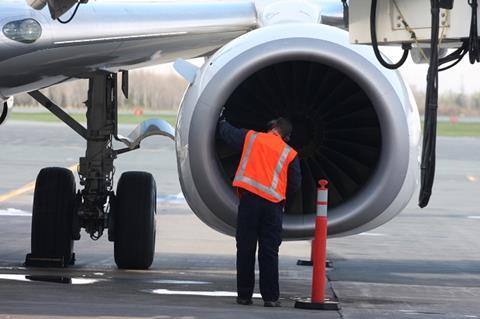An interview with aviation loss adjusters at Charles Taylor focused on how aviation firms and their insurers are doing more with data.

GR sat down with Charles Tayor’s global director for its aviation team Hugh Thacker, managing director for aviation in the Asia Pacific region Bob Battoo, and director for aviation in the EMEA region Chris Whittington.
The trio from the insurance loss adjustment firm spoke about some of the challenges facing the aviation industry and its insurers in 2024. Chief amongst these was the use of data.
Whittington, who has been with Charles Taylor for nearly eighteen years, said that the world of aviation insurance was being changed using data.
“The use of data is something that we’re seeing in the loss-adjusting arena and mainly on the aircraft maintenance side,” he said.
“We look at making repairs and the best way to do that. It’s not so much AI, but there are systems in place that are automatically using data.
“We can have aircraft completely scanned to see the damage that’s been done. And then that data can, in its raw form, be sent off to the manufacturers who can use it to help with the repair process.”
The reason for this increased use of data, said Whittington, was largely because the technology had so improved in attaining it.
“We had to be careful in the old days about keeping capital costs down,” he said. “You used to be able to look at the damage done, where it was, and change the bits of metal that were affected.
“It was straightforward but aircraft today have such minimal material—and often composite material—that we have to see whether it can be repaired, or whether there’s another option. In many cases, the damage may also not be visible so new technology can be used to evaluate that.”
Battoo picked up on the subject. He said that aviation insurers were interested in better use of available data and want to see how it could be used in pricing models.
“That’s a question I’ve heard being asked,” he said. “People are wondering how data can be used—that’s claims data, aircraft data, pilot data, data about take-off and landing, and whether the aircraft is carrying out regular missed approaches. Is that data valuable? Is it going to drive premiums down or up? These are some of the questions that we’re being asked.”
Whittington underlined the collection of data by insurers is less concerned with adjusting for loss than it is with underwriting.
Thacker emphasised the importance of long-term partnerships in the sector.
“We have very longstanding relationships with the specialist aviation insurance market,” said Thacker.
“Some of them are leaders and they tend to be our key clients. The act us to manage claims on their behalf. That talks a lot to the state of the market because the expertise to handle claims tends to be with certain key players. It’s not a rapidly evolving market,” he added.










No comments yet